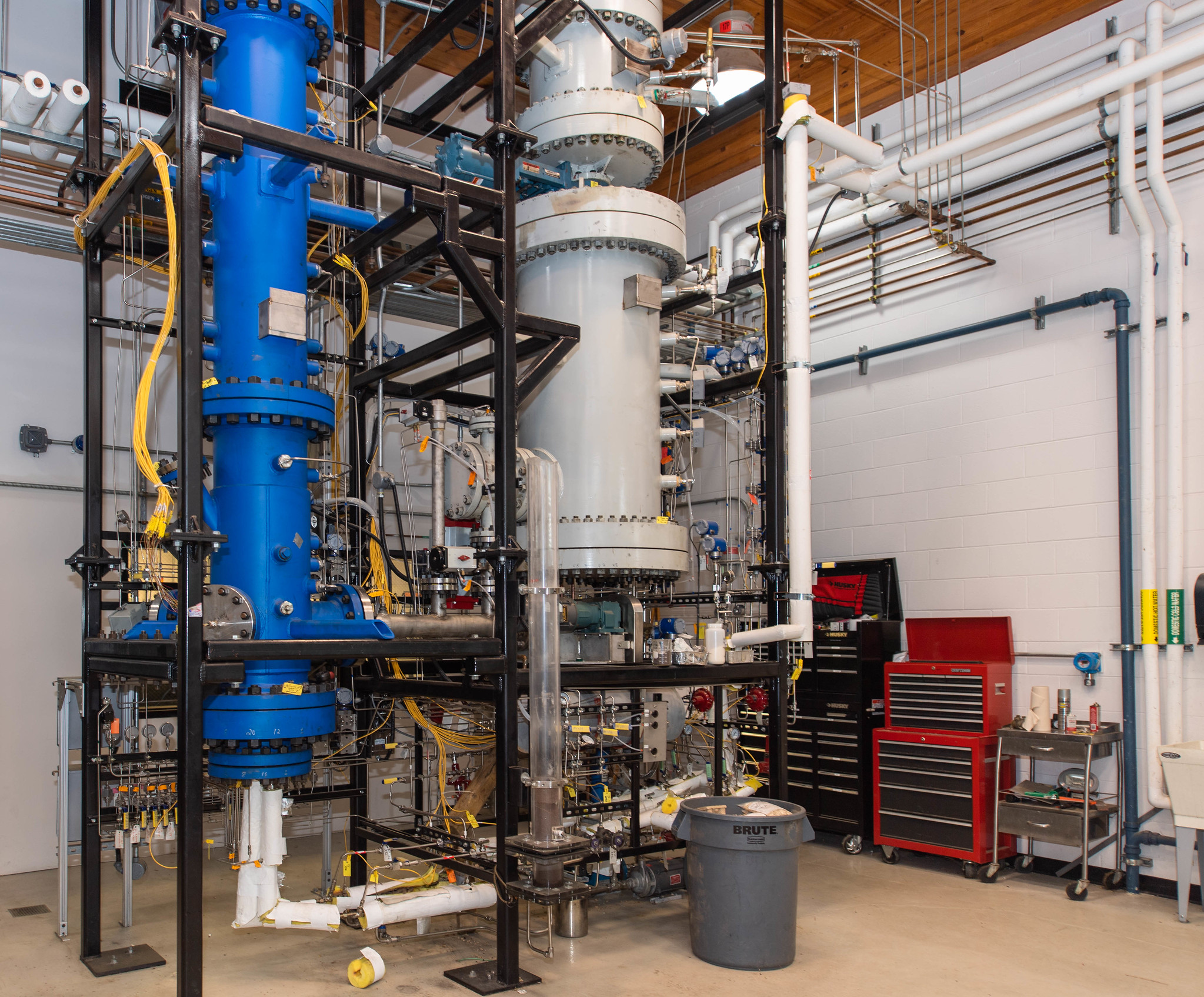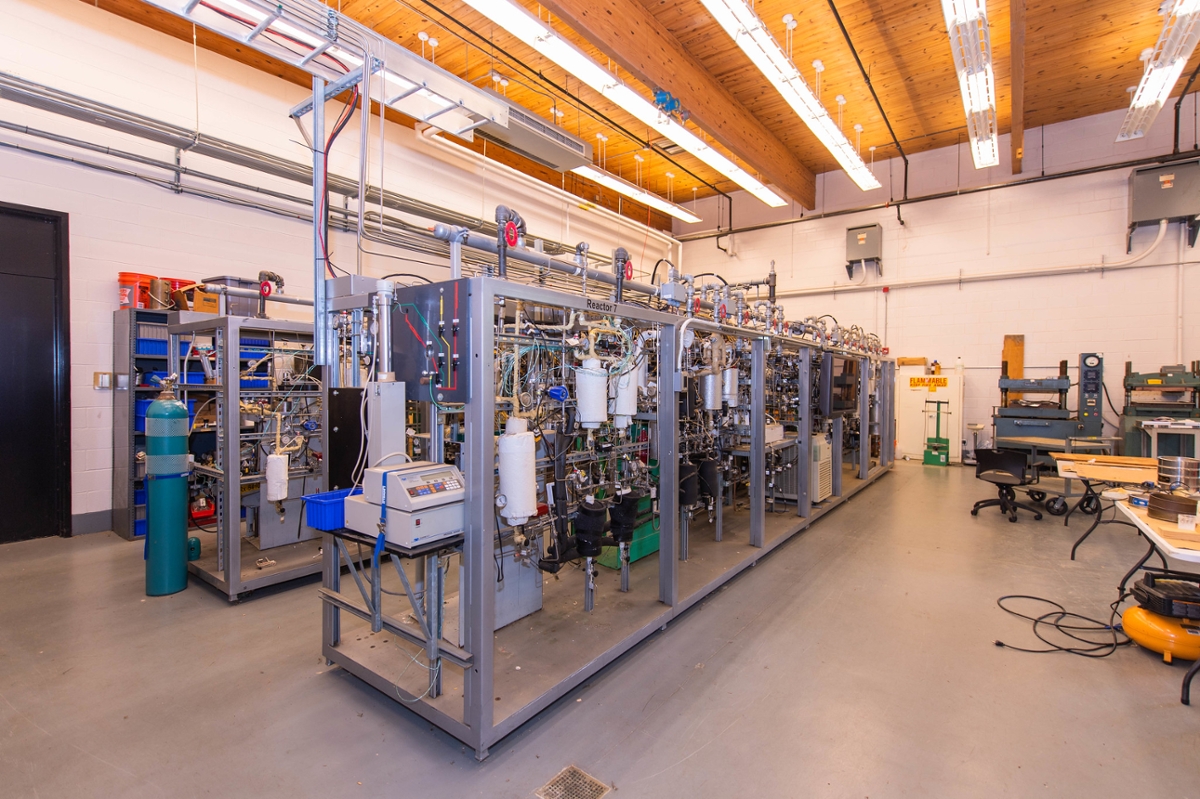Auburn University has invested heavily in bioenergy and bioproducts research infrastructure. These facilities allow our faculty and students to answer critical questions and develop technologies to accelerate deployment of a regional biorefining industry. An initial $6 million infrastructure building phase created bioenergy laboratories in Auburn’s Research Park through renovation of the Forest Products Laboratory. Laboratories focus on biomass fractionation, biomass gasification and gas conditioning, catalytic fuel synthesis, biomass gasification and power generation; and bioproduct analysis. Recent construction resulted in new labs for biomass feedstock processing, biomaterials characterization, and biochemical conversion. These laboratories are housed in the new Center for Advanced Science, Innovation, and Commerce and in the Biological Engineering Research Laboratory. Additional facilities for biomass processing and analysis; biomass pretreatment and biochemical conversion; Fischer-Tropsch conversion, catalyst development, process integration and optimization; and biofuel testing exist in collaborating units that include the Forest Products Development Center, Biosystems Engineering, Chemical Engineering Department, National Center for Asphalt Technology, and USDA Forest Service.
Pilot-scale Gasification and Gas Conditioning Laboratory. A pilot-scale bubbling fluidized bed gasification system allows extensive research on gasification of biomass feedstocks and conditioning of biomass-derived synthesis gas. The one-ton-per-day pressurized reactor operates with air, oxygen, or steam as oxidants. Downstream facilities allow warm gas filtration followed by gas conditioning through multiple flexible fixed bed reactors.

Catalytic Liquid Fuel Synthesis Laboratory. The catalytic liquid fuel synthesis laboratory contains two catalytic reactor platforms: 1) fixed bed reactors, and 2) continuously stirred tank reactors (CSTR). A total of eight, two-liter CSTR reactors and five fixed bed reactors are configured for studies of catalysts for liquid fuels production using techniques such as syngas to alcohols, Fischer-Tropsch synthesis, or other catalytic processes using biomass-derived synthesis gases or other feedstocks. Bio-oil upgrading to hydrocarbons can also be studied. Fully automated data acquisition and control systems allow for long term campaigns for catalyst evaluation. A highly capable group of research engineers and engineering technicians is on hand to insure successful results.

Biomass Characterization: Biomass Characterization Laboratory is equipped with walk-in refrigerated rooms and enclosed laminar hoods. The Center is fully equipped to perform biomass proximate, ultimate and compositional analyses. Instruments that are available in this laboratory are: oxygen bomb calorimeter, drying oven, muffle furnace, volatile matter furnace, automated particle size analyzer, pycnometer (for density measurement), thermogravimetric analyzer, CHNS/O analyzer, differential scanning calorimeter, Fourier transform infrared (FTIR) spectrometer, CDS pyroprobe, hammer mill, knife mill and vibratory separator
Liquid Fuel Characterization: Fuel Characterization Laboratory is equipped with pH meter, Karl-Fisher titrator, thermogravimetric analyzer, CHNS/O analyzer, differential scanning calorimeter, Fourier transform infrared (FTIR) spectrometer, shear tester, reheometer, Agilent gas chromatograph/mass spectrometer (GC/MS), HPLC, Agilent 490 micro GC, SRI GC/TCD.
Catalyst Characterization: Catalyst characterization Laboratory is equipped with TGA, Quantachrome-1Q surface that is capable for performing physisorption, chemisorption, TCD/TPR/TPO, CHNS/O analyzer, differential scanning calorimeter, Fourier transform infrared (FTIR) spectrometer. Additionally, TEM, SEM, Field Emission SEM, EDS, XRD, AFM, Laser Scanning Confocal Microscopy, 13C, 1H and 31P NMR are available for the research at different departments at AU.

